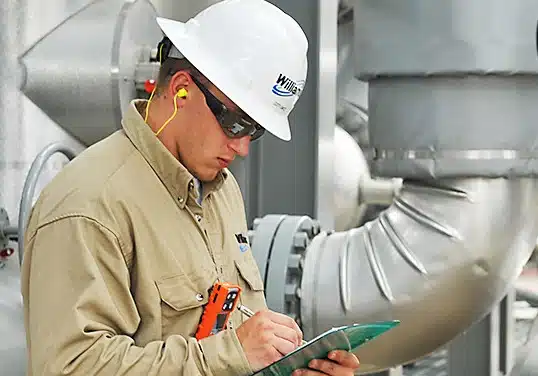Corrosion under Insulation (CUI) is a severe form of corrosion that occurs at the interface of a metal surface and the insulation that covers it. This type of corrosion is particularly challenging to detect and manage due to the insulation concealing the underlying metal surfaces.
Causes: CUI often happens when water penetrates the insulation material, leading to a corrosive environment at the metal surface. This water can come from rainfall, condensation, leaks, or other sources.
Materials Affected: While CUI can affect various metals, carbon steel is particularly susceptible. Other materials, like stainless steel, may also be affected under specific conditions.
Temperature Range: CUI typically occurs in a temperature range between -4°C (25°F) and 175°C (350°F), but this can vary based on several factors.
Detection: Detecting CUI can be a complex process, often requiring the removal of insulation to inspect the underlying metal. Non-destructive testing methods like ultrasonic testing can sometimes be used, but they may not always be effective.
Prevention and Mitigation: The selection of the right insulation materials, proper design, and periodic inspection and maintenance are critical to prevent or mitigate CUI. The use of coatings and barriers that repel water can also be effective.
Consequences: If left untreated, CUI can lead to a loss of material thickness, structural integrity, and even catastrophic failure of the equipment. It is a significant concern in industries such as oil and gas, petrochemical, and power generation, where insulated piping and equipment are commonly used.

